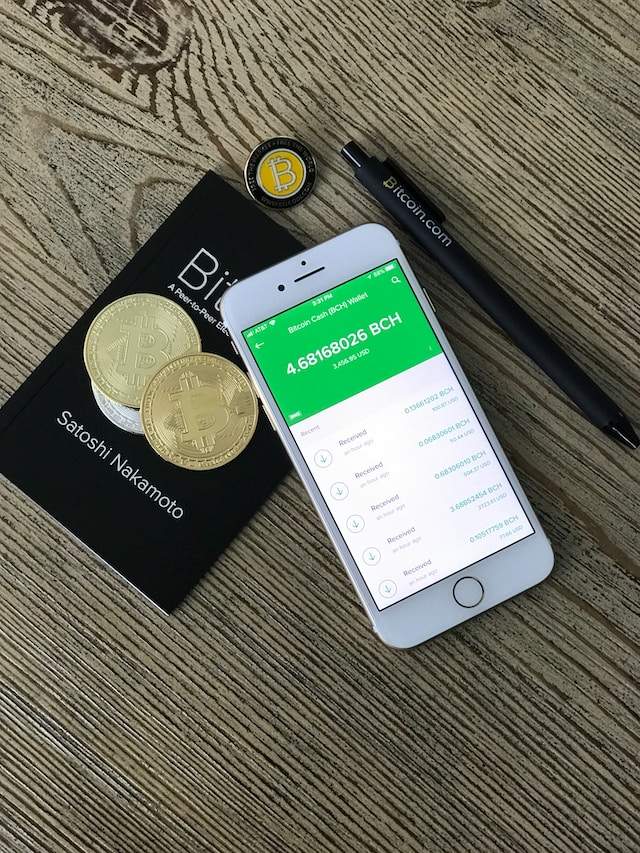Protecting Your Bitcoin Investments: How to Spot and Recover from Scams
What Are Bitcoin Scams?
Bitcoin scams are similar to any other financial crimes, except that the fraudsters are seeking your crypto assets instead of your money.
Many scammers use similar tactics employed in other financial scams, such as pump-and-dump scams that attract investors to buy an asset with false claims about its value or blatant efforts to steal digital assets.
Their primary goal is to dupe victims into disclosing personal information or transferring valuable digital assets, such as non-fungible tokens (NFTs), to the perpetrator’s account.

How do scammers operate?
Crypto scammers often dupe customers into handing them their cryptocurrency by mimicking respectable businesses and proposing unrealistic investment prospects. For example, they may create bogus websites or social media accounts that imitate well-known exchanges or companies, and then offer bogus promotions or bonuses to entice people to deposit cryptocurrency into their accounts.
When dealing with cryptocurrencies, it is critical to exercise caution and conduct a thorough study before investing. Always utilize recognized exchanges and wallets, and never believe anybody who offers guaranteed returns.
Types of Bitcoin Scams
Bitcoin scams occur in a variety of shapes and sizes, each with its own set of warning indicators and red flags. The following are some of the most typical forms of scams:
1. Fake websites
Scammers at times build duplicate crypto trading platforms or replicate versions of official cryptocurrency wallets to trick their naive targets. These bogus websites often use domain names that are similar but slightly different from the sites they are attempting to imitate.
They appear remarkably similar to the official websites, making it difficult to differentiate between them. Fake cryptocurrency sites frequently operate in one of two ways:
Phishing pages:
Any information you input, such as your cryptocurrency wallet’s password and recovery phrase, as well as other financial data, ends up in the hands of a criminal.
Straightforward theft:
Initially, the site can let you withdraw a small amount of money. You might invest again since your investments appear to be performing well. However, when you want to withdraw your assets, the site either closes down or denies your request.
2. Phishing scams
Bitcoin phishing attacks typically target information about online wallets. Scammers target private keys for crypto wallets, which are essential to accessing funds within the wallet. Their operating approach is comparable to previous phishing efforts and is connected to the bogus websites discussed above.
They send an email to entice subscribers to visit a specially designed website and submit private key information. The hackers then seize the bitcoin contained in such wallets after gaining this information.
3. Pump-and-dump schemes
Scammers may even overstate the value of a certain currency or token using an email blast or social media platforms such as Twitter, Facebook, or Telegram. Due to fear of missing out, traders rush to purchase the coins, increasing the price. After successfully hiking the price, the fraudsters liquidate their shares, resulting in a crash as the asset’s value swiftly declines. This may happen in an instant.
4. Fake apps
To dupe bitcoin investors, scammers also frequently use bogus apps available for download on Google Play and the Apple App Store. They have a major impact on many businesses as these fraudulent apps are rapidly discovered and installed. Thousands of individuals have downloaded these fraudulent bitcoin applications.
5. Fake celebrity endorsements
To entice potential victims, cryptocurrency fraudsters may pose as or claim support from celebrities, businesses, or influencers. This sometimes includes selling bogus cryptocurrency to prospective investors. These frauds can be complicated, involving glossy websites and brochures that display celebrity ads from popular personalities like Elon Musk.
6. Giveaway scams
In what is known as a “giveaway scam,” scammers offer to match or multiply the cryptocurrency sent to them. Clever wording in the messages from what often appears to be a legitimate social media account can create a sense of authenticity and spark a sense of urgency. This supposed “once in a lifetime” opportunity can lead people to transfer funds instantly in the hope of a quick return.
7. Blackmail and extortion scams
Blackmail is another method used by scammers. Users get emails from scammers claiming to have a record of the sexual websites they have visited and threatening to expose them unless they provide their private keys or donate bitcoin to the fraudster.
8. Cloud mining scams
Cloud mining involves companies that rent out mining hardware for a fixed fee and a percentage of the revenue allegedly generated. In principle, this allows users to mine remotely without purchasing expensive mining hardware. However, many cloud mining firms are scams or are unproductive, resulting in you losing money or earning less than was intended.
9. Fraudulent initial coin offerings (ICOs)
An initial coin offering or ICO, is a method for start-up crypto companies to collect money from future users. Customers are frequently promised a discount on the most recent cryptocurrency in exchange for submitting active coins such as bitcoin or another popular cryptocurrency.
Several ICOs have proven to be fraudulent, with criminals going to great measures to defraud investors, such as hiring bogus offices and developing high-end marketing materials.
How to spot Bitcoin scams
So, how do you identify a bitcoin scam? Here are some of the red flags to keep an eye on, which are:
Promises of guaranteed returns:
No financial investment will ensure future profits since investments might go up or down. Any crypto offering that guarantees you will surely earn money is a red flag.
An invalid or non-existent whitepaper:
Every cryptocurrency should be backed with a whitepaper since it’s one of the most important aspects of an ICO. The whitepaper should describe how the cryptocurrency has been developed and its working. If the white paper doesn’t make sense—or worse, doesn’t exist—then head cautiously.
Excessive marketing:
All companies advertise themselves. But one way that crypto swindlers lure people is by investing in grand marketing online advertising, paid influencers, offline promotion, etc. This is planned to reach as many individuals as possible in the shortest amount of time to create money quickly. If the marketing for a crypto product appears heavy-handed or makes grandiose promises without the necessary evidence, halt and conduct more investigation.
Unidentified team members:
Most investment organizations’ important personnel ought to be discoverable. Typically, this comprises easily available biographies of the individuals in charge of the investment, as well as an active social media presence. Be wary if you can’t find out who is giving out cryptocurrency.
Money for nothing:
Any investment offer that promises free money, whether in cash or bitcoin, is most likely a scam.
Tips for Avoiding Crypto-Recovery Scams
Below are the steps you can take to safeguard yourself and stop Bitcoin scammers in their tracks:
Check identities
If you get an offer for crypto-recovery from someone claiming to be a member of police enforcement or a government entity, do not react using the web URLs, email addresses, or phone numbers they provide.
Look up the relevant agency and contact them yourself, requesting confirmation that the communication is legitimate. (Because crooks have been known to use legitimate officials’ identities, merely confirming that an agent with a certain name works for the agency isn’t enough.)
Use well-known contacts
If someone claims to be investigating a previous fraud incident, it’s important to be extra cautious. This is because the individuals who scammed you initially would likely be familiar with the details of the crime, which could make them appear more convincing when posing as investigators.
Respond using the contact information they provide, rather than utilizing information from your records to contact the persons who handled your case. Contact them directly to hear about any new developments and to report any communications from bogus investigators.
Be wary of suspect contact information
Avoid anybody who contacts you with advice on crypto recovery (or any other financial concern) and provides you with dubious contact information or refuses to provide you with contact information.
Avoid payment gimmicks
Requests for upfront payment should raise a red signal. Legitimate asset recovery firms do not charge fees until their task is completed. Claims that you must pay a charge or settle (or prepay) taxes on your holdings may also raise red flags.
Finally, anybody asking for payment via gift cards or wire transfers is looking for monies that will not leave a trace. If they do not comply, report them to the proper authorities.
Insist on a written contract
No professional service provider will begin work without first offering a summary of the services they intend to offer, as well as the accompanying cost. Before agreeing to any task, insist on checking documents. If the individual you’re working with hesitates or gives you the runaround, stop communicating with them and report the possible fraudster.
Personal information should be kept private
Don’t disclose your bank account details, Social Security number, passwords, or private crypto key to anybody who promises to retrieve stolen cryptocurrency value. If you have reason to suspect a fraudster already has some or all of these credentials, immediately contact the proper institutions and legal authorities and take actions to protect your accounts.
Recognize too-good-to-be-true promises
Investing involves risk, and cryptocurrency is riskier than many others. Funds lost due to a bitcoin price reduction cannot be restored. There are no fast remedies for these losses, and no one who promises them is credible.
In conclusion
Criminals are willing, even eager, to take advantage of your misery and concern, adding to your financial losses with hollow promises and false optimism. If you’ve been shaken, or worse, cheated out of your crypto assets, it’s natural to look for a means to recoup your losses.
But the harsh reality is that you may be out of luck, and chasing bogus remedies may exacerbate your difficulties. Be aware of the predator’s strategies and take care not to compound your losses.







